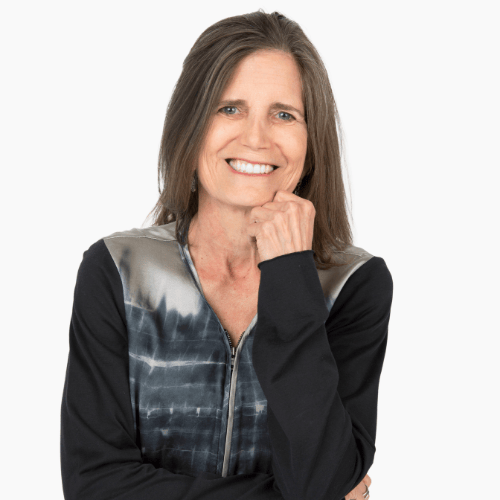Fueling Founder Sales and Followership with Passionate Ambivalence
Nov 03, 2025

By Sue Heilbronner, Techstars Mentor
Everyone is always selling.
I say that as someone with 20 years as an angel investor and VC and 15 years as a proud Techstars Boulder mentor (yes, I once got a Mentor Spotlight video. I know. Flex.).
But here’s the point: whether you’re a founder, mentor, PM, VC, or C-suite exec, you are always selling — ideas, vision, leadership, and yourself.
I spent the past two years writing Never Ask for the Sale: Build Your Business Through Passionate Ambivalence because I want founders to sell better — not harder. When you become more aware of the ambient selling happening around and in you and learn to do it more easily, authentically, and effectively, everything moves up and to the right:
You raise money faster and on better terms.
You find and fuel product-market fit.
You build genuine followership — from investors, teammates, and customers.
You feel more aligned and happy while doing it.
The secret is “Passionate Ambivalence” — showing up as excited as you are about an opportunity, while staying unattached to whether it closes. Below are three lessons from the book that every founder can apply today.
1. Clear Your Limiting Beliefs
Start by getting out of your own way. Every founder carries old stories — I’m not good at fundraising. I’m too technical. My network isn’t strong enough. These beliefs quietly sabotage your confidence in selling moments. Limiting beliefs often come in the form of “I’m less likely to do ____ because I’m not ___ enough or too ____.”
Trace and interrogate them. Where did they come from? Are they still true? Can you name evidence that contradicts them?
The goal isn’t to eliminate every insecurity — it’s to get some distance from and control over these negative thought patterns. When you can see a limiting belief as a story rather than a fact, you get more choice. From a place of greater agency, you show up as yourself — and you sell far more naturally.
2. Build Your One-Minute Bio
You need a quick, authentic way to introduce yourself — one that lands at about 75% of your full wattage. Too much bravado (a context I label “one up”) reads as insecurity; too much modesty (one-down) undermines your power and credibility.
I’ve done this exercise with founders from pre-seed to post-IPO. Write a one-minute version of who you are and what you do. Tell a story, not a sequential outline of your resume. Focus on themes of your greatest strengths, instances of huge achievement, and times of failure that led to a subsequent learning or success. Then test it with others: how inspired would someone feel to invest in you, join your team, or follow your lead?
If you want feedback on your bio, find me at heysue.com/contact. If you think you are most often a one-down teller of our own story, drop your draft into ChatGPT with the prompt: “Rewrite this bio in the tone of Liz Giorgi.” She’s a Techstars alum — and a perfect model for authentic, slightly daring confidence.
3. Use Passionate Ambivalence at Every Stage
Once you’ve cleared the internal clutter and clarified your story, apply passionate ambivalence everywhere in your funnel. You’ll find a quick graphic of funnel stages and passionate ambivalence approaches here. Here are a few founder-centric examples:
Fundraising: Treat investors as equals. You’re offering them a rare chance to participate in something extraordinary. Be thrilled to connect — and completely fine if they pass. Developing a context of equality (you are each offering something of value) creates better terms and better energy.
Pricing: If you’re offering early discounts to early beta customers, own and convey that strategy. Explain that pricing will rise as you refine the product. Partner with them; don’t chase them. Discounting out of desperation signals doubt in your and your product’s value.
Organic Closes: I didn’t name my book “Never Ask for the Sale” for nothing. Pressure kills trust. End-of-quarter urgency is understandable, but it’s repellent to the person on the other side of the deal. If your product is genuinely valuable, the right customers will buy, even if they buy on their timeline. Stay present, not pushy. Long-game confidence sells more than short-term desperation.
This is just a taste of what’s in Never Ask for the Sale. If the ideas resonate, grab a copy — or a stack for your team. Because in startups, everyone is selling something, whether inside or outside the walls. The best sellers build enough personal alignment and enough passionate ambivalence to make it feel organic, natural, devoid of the “ick.”
About the Author

Sue Heilbronner
SUE HEILBRONNER is a sought-after speaker, startup CEO, adjunct professor of entrepreneurship, strategic facilitator and advisor, conscious leadership coach and program leader, cofounder of the MergeLane venture capital fund, former federal prosecutor, and a direct and fearless catalyst for change. She is the author of “Never Ask for the Sale.” Sue has been a Techstars mentor for the last 15 years.
She earned a BA from Oberlin College and a JD and master’s of public policy from Duke University. She lives in Boulder, Colorado.
